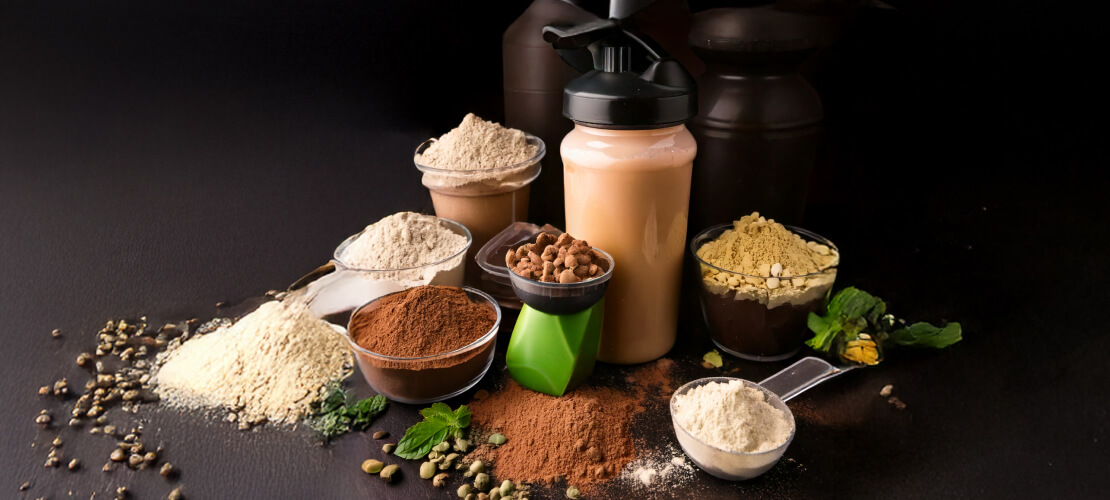Protein powders are everywhere these, blended into smoothies, gym bags, meal plans and for good reason. They’re quick, easy, and help people hit their protein goals without much effort. Whether you’re an athlete, someone getting back into shape, or just trying to eat healthier, chances are you’ve at least thought about trying one.
But here’s the catch, while protein powders have plenty of benefits, they’re not always as harmless as they seem. A lot of people experience side effects, especially if they’re not paying attention to what’s actually in the scoop. This article breaks down the most common side effects and gives you the real deal on what protein supplements can do to your body.
Tummy Troubles: Why Your Stomach Might Not Be Happy
Bloated? Gassy? You're Not Alone
One of the first things people notice when they start using protein powder is that their stomach starts acting up. That uncomfortable bloated feeling? Yeah, it’s way more common than you think. Especially if you’re using whey protein, which contains lactose. If you’re even slightly lactose intolerant, this can be a problem.
Constipation or Diarrhea
Not drinking enough water? Not getting enough fiber? Hello constipation. On the flip side, some powders (especially the ones packed with sugar alcohols or artificial stuff) can send you running to the bathroom. It’s really about how your body reacts and what kind of protein you’re using.
Dairy Sensitivity? Watch Out!
If you’re sensitive to dairy or lactose intolerance, whey and casein might not be your best friends. Cramping, nausea, or bloating after drinking a shake could be your body’s way of waving a red flag. Plant-based powders tend to be a safer option in these cases.
The Bigger Picture: What happens with Long-Term Use?
Can Protein Powder Hurt Your Kidneys?
There’s a lot of debate on this one. The short answer is if your kidneys are healthy, you’re probably fine. But if you already have kidney issues, it’s best to check with your doctor first hand.
What About Your Liver?
Too much of anything isn’t great, and protein is no exception. If your diet is overloaded with protein but lacking in other key nutrients, your liver might start to feel the pressure. This is especially true if you’re taking multiple supplements. Balance is key.
Hydration is a Must
A lot of people forget that digesting protein requires water. If you’re chugging down protein shakes but not drinking enough fluids, dehydration can sneak up on you. And that’s no joke, it can drain your energy and even impact kidney function.
Hidden Ingredients That Might Be a Problem
Artificial Sweeteners = Real Issues
Ever wonder why some protein powders taste too good? It’s usually because of artificial sweeteners like sucralose, aspartame, or acesulfame potassium. While they help keep the calorie count low, they can also lead to bloating, headaches, or just feeling a little “off.” Some people do better with natural sweeteners like stevia, but it really depends on your body.
Heavy Metals in Your Protein Powder? Yes, It’s Possible
This part’s a bit scary: certain protein powders contain trace amounts of heavy metals like lead or arsenic. How? Usually through contaminated ingredients or poor manufacturing practices. It’s not something that’ll hurt you after one scoop of protein powder, but over time, it can add up. Look for brands that share their lab test results and use clean sourcing.
Watch Out for Hidden Allergens
Soy, dairy, gluten, nuts—protein powders can sneak in ingredients you weren’t expecting. If you suddenly start getting hives, stomach issues, or other weird symptoms, your protein powder could be the culprit. Always check the label, especially if you have known allergies.
Will Protein Powder Make You Gain Weight?
It's All About the Math
At the end of the day, protein shakes still have calories. If you’re drinking them on top of your regular meals without adjusting your overall intake or staying active, weight gain is definitely possible. Protein isn’t a magic calorie-free pass.
Muscle vs. Fat
When you pair protein intake with strength training, you’re likely to build muscle. But if you’re sedentary and still consuming extra protein, it may lead to fat gain instead.
Watch Out for Hidden Calories
Some powders are loaded with sugars, creamers, or extra carbs to improve taste and texture. That means your “simple shake” might be closer to a full meal in terms of calories.
Is Protein Powder Safe?
For Most People, Yes
If you’re healthy and not overdoing it, protein powders can be a great tool to fill nutritional gaps especially for athletes, busy professionals, or people recovering from injuries.
But Not All Protein Powders Are Created Equal
Some are packed with fillers, artificial additives, and harmful ingredients. To ensure safety, consumers should choose products that undergo third-party testing and provide transparent labelling. Opting for reputable brands with clean ingredients can significantly reduce the risk of adverse effects.
Supplements Aren’t Substitutes
Protein powder is meant to supplement a well-rounded diet, not replace real food. Whole foods like eggs, lentils, lean meats, and nuts offer more than just protein. They give you fiber, antioxidants, and other nutrients that powders can’t match.
Health Conditions? Talk to a Doctor
Kidney or liver issues? Pregnant or breastfeeding? Don’t guess. Check with a healthcare provider before adding supplements to your routine.
Listen to Your Body
Everybody is different. What works for your gym buddy might leave you feeling awful. Track how you feel, try different brands if needed, and don’t ignore the signs if something feels off.
Final Thoughts: Is Protein Powder Worth It?
Protein powders can be a great addition to your diet if you choose wisely and use them in moderation. Read the ingredients. And don’t fall for flashy marketing without doing a little homework first. And always remember: they’re a boost, not a shortcut.
From the Team at Bione
At Bione, we care about your long-term health, not just short-term trends. Protein powders can play a valuable role in your wellness journey, but only if you use them mindfully. Our advice? Choose clean, high-quality options, avoid unnecessary additives, and talk to a professional if you’re unsure. Explore our range of trusted wellness products, and stay tuned for more science-backed tips to help you make smarter choices and lead a healthy life.
FAQs
Bloating, gas, constipation, and sometimes diarrhea — often due to lactose or certain additives.
Not if you’re healthy. But if you’ve got kidney concerns, talk to your doctor first.
Yes, if you’re not tracking calories and not exercising, it can lead to weight gain.
For many people, yes. Especially if you’re sensitive to dairy. Just make sure it’s a complete protein.





